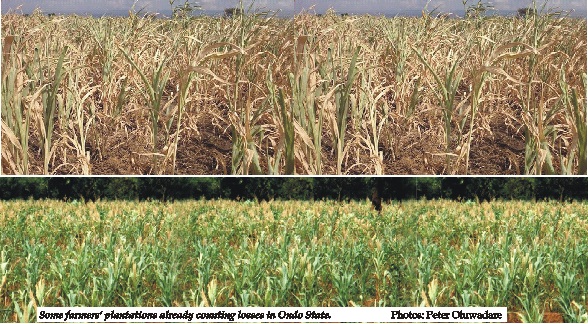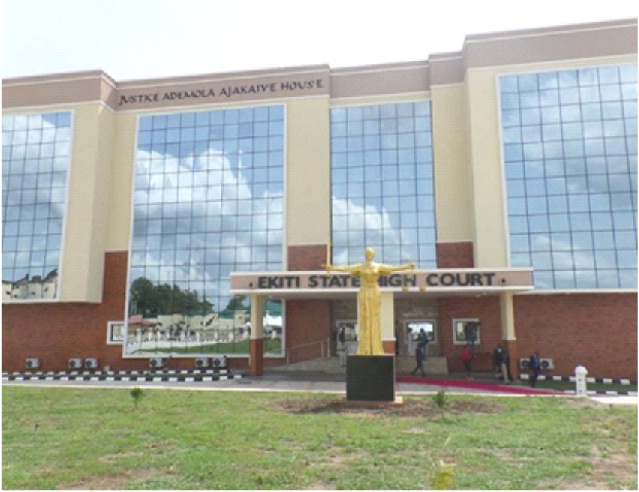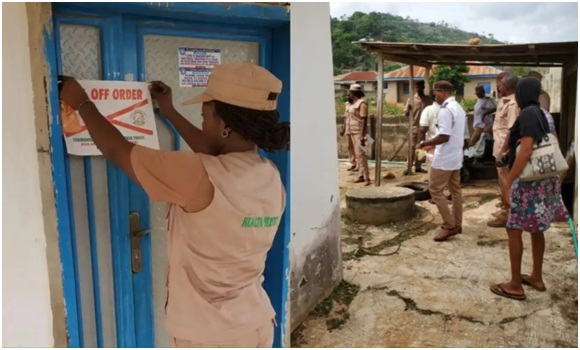Roads without motorable ways
Bayo Fasuwon
Transportation remains the road to development. Without functional and motorable roads, exploitation of resources for national and human development becomes a mirage. Right from the time of the Tran Saharan goods trade to the transatlantic slave trade, the creation and maintenance of recognized routes have been indispensable to the gains expected and derived from these economic ventures.
The Colonial masters knew the importance of roads, hence the creation of routes from the centre to the hinterlands. The various villages and hamlets which were lucky to have their areas as paths have been transformed into cities, and some, national and State Capitals.
Having observed this, it is without doubt that roads have become indispensable tools for development. This, the early leaders of Nigeria, especially, Obafemi Awolowo, acknowledged and led to the massive road constructions that took place all over his region, and of course those that came to fore in other regions of the country. While the roads constructed by the various Premiers were of world class in quality, quantity and linkages, such could not be said of its size. So, it would not be out of place to observe that road constructions then were based on the realities of less vehicles, cyclists and more pedestrians, they did not ever think that vehicles would one day become household commodities, hence the roads were narrow and strait, though solid and long lasting.
Few days ago, one saw a miffed Wasiu Ayinde Marshal, apparently the ‘official’ song leader of the ruling party, on Social Media. There he lamented that he took off from Lagos around 9:45am in the morning and arrived safely, but angry and exhausted at his destination in nearby Osun State by 5:00pm in the evening. He was neither diplomatic nor apologetic in registering his anger on the unfortunate experience. While lamenting over what Nigerians are made to pass through on our roads, he however toed the line of primordial sentiments by insinuating the South West was being marginalized with regards to road construction and repairs. Many South Westerns have also questioned the benefit of having someone at the base of the orange tree, and still consume sour oranges. They feel strongly that the presence of Mr. Babatunde Raji Fashola at he helms of affairs at the ministry of works, was an opportunity for the South West to bid bad roads eternal farewell. On the contrary, Federal and other roads in the South West are nothing but death traps and time wasters.
One could not deny the observations of KWAM 1 on the deplorable state of our roads. Travelling from Ondo State to Oyo State via the Ilesha-Ibadan express road is like journeying through hell. One is made to pass through villages that one never knew existed. Vehicles moved through the valleys of the shadow of death, thereby making journeying a huge prayer subject in religious homes.
The alternative route of Benin-Ore-Sagamu road enroute Lagos would have been desirable but for the several road blocks mounted by the Police in order to checkmate men of the underworld. Journeying within the States, from one local government area to the other is also back breaking and nerve raising. Sadly too, especially in Ondo State, people have unilaterally constituted nuisance by erecting stopper (not speed limiters) as bumps in every 1 kilometre, thereby creating room for extortionists and destruction of vehicles. When it comes to illegal ‘bump’ constructions on the already pot holed roads in and around the States, unfortunately, Ondo State is a force to reckon with.
But why are roads that bad? Let us start from the obvious. Corruption. Nigerians may be surprised to know that many of the so-called bad roads could have the recorded as repaired and in very good condition. Possibly, a physical and forensic verification of all Federal Roads, in comparison with the records in FERMA and the Ministries of Work and Transport could affirm or debunk this. Corruption is also seen on the quality of roads being delivered by contractors. Compared to the roads made in the sixties and seventies, the roads made nowadays do not seem to pass the test of time.
The Asphalt roads of today could well be compared to the surface dressing of yester years. Now we blame trucks of destroying the roads, while we do not ask whether the roads were not meant for trucks to travel on in the first place. This however does not excuse the Truck owners and Drivers who overload their Trucks beyond the recommended capacities, thereby putting unexpected pressures on the roads per time. Visit any road construction site, especially in the South West and South East, and you would be surprised at the quality of materials and the roads being ‘commissioned’ by the Excellencies. It seems roads are deliberately made to last few years so that incoming Governors could as well ‘eat their own’ in reconstruction of hitherto reconstructed roads. Many roads lack functional drainages, that is where any exists at all. The resultant effect is that run off erosions wash away shabbily constructed roads, leaving the roads worse than they had ever been.
One could also point to the negligence exhibited by FERMA workers who are experts of cutting away parts of the roads for repairs, only to leave the cut, sharp gullies open for years. Many claimed that after opening the ‘wounds’, there are little or no monies to fill the pit and make the roads motorable. Well, the result is enlargement of the cut areas and of course avoidable road carnages. The blame should not be left at the doorsteps of Federal agencies, but also on State road maintenance agencies. Seems they suffered from the same malaise. Laughable several times over are State Government’s excuses that certain deplorable roads belong to Federal Government, hence they could not work on it. Matters are made worse when the Federal, suffering from the pinches of over bloated road repair bills, insisted that States should not repair roads on their behalf. The question is who loses? The people of course. In areas where earnings from transport tax could have subsidized government’s spending on the roads, politicized politics have destroyed tollgates, and now laughable, millions of naira would be expended in rebuilding them again.
Many other factors could also be raised but for time and space. But the most germane is that leadership does not view road constructions as been indispensable to development. Time and lives lost on the roads seems of no value and importance to government. Road construction has become a conduit pipe for the greedy. It is time Nigeria goes back to pursuing quality, and allowing the local governments manage the roads in their domains. It is beneficial to build roads that would last generation than build roads that would end up being death traps. Good roads would of course cure food shortages and of course boost exports, while at the same time develop our tourism. With good roads, there would be city decongestion and of course reduce deaths on the highways. As far as Nigeria is concerned now, we have roads, but there are no ways to get to the destination we seek, in peace and on time.










